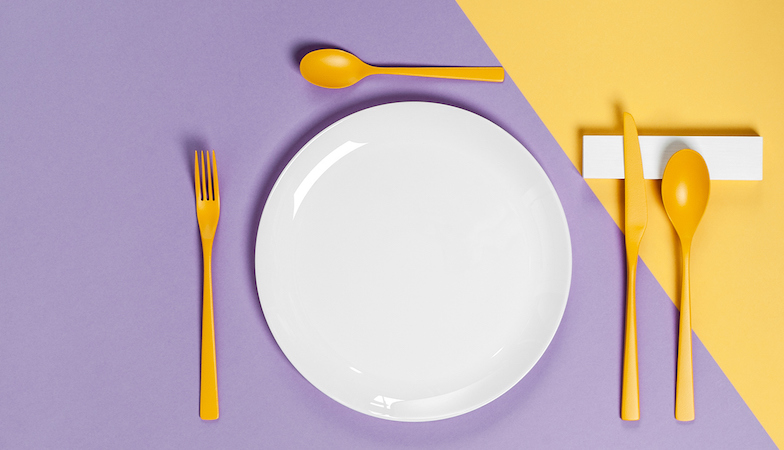If you’re always tired, energy can feel like a precious commodity. Anna Magee talks to a clinical nutritionist about what’s making us so exhausted and exactly how to fix it
After the Christmas and new year onslaught you may be feeling like nothing less than a four day weekend for the next 12 months will restore your batteries to their full power.
Indeed, unexplained fatigue is commonplace whatever the time of year, and in the UK it comprises 5 to 7 per cent of primary care appointments.
And once you get that ‘always tired’ feeling, it’s hard to know what helps. Coffee and other ‘uppers’ such as chocolate and biscuits, of course do, but they always come with a crash and cravings for more; a vitality sapping merry-go-round many of us ride daily.
frequent snacking can overwhelm the digestive system and impact energy
Of course, sugary fast fixes aren’t the best choices but when you need instant energy to reach an all-important deadline or get those children off to sleep/football/school, the options seem dismally limited.
It’s an issue close to our hearts at Healthista HQ where many of the team have to juggle families and full time work, not to mention a few mandatory killer workouts a week.
It prompted us to wonder, how does the body even make energy? What’s eating all ours up and what can we do to get it back?
We spoke to clinical nutritionist, Raihane Palagi a senior nutritionist at Biocare to find out.
How your body makes energy
To understand how our body produces energy, we first need to get to know our mitochondria. These are little powerhouses found in each of our cells, where energy is made. They’re generally more concentrated in our muscle cells, brain and heart.
When we eat, our digestive system breaks down food into small molecules, such as glucose from carbohydrates, fatty acids from fats and amino acids from proteins.
These molecules are then transported into our cells, and inside the mitochondria where they generate a molecule called adenosine triphosphate (ATP), which is the energy carrier used by our body; its chief fueling system.
The rate at which ATP is produced by the mitochondria is regulated by the thyroid gland, which just goes to show that energy management is complex and reliant on different factors.
11 energy draining things people that are always tired do
ENERGY THIEF #1: You’re not taking recovery time
Not balancing their working time with adequate recovery time is a huge issue for women. It’s easy to forget self-care and place our family, work and other responsibilities before our own wellbeing. But you can’t pour from an empty cup’ and women need to carefully listen to what their body is telling them, so they can take the time to rest and nourish their body and mind.
ENERGY THIEF #2: You constantly snack
It’s easy to think that snacking throughout the day can improve our energy levels and it does to some extent, for a short period. However, frequent snacking can be detrimental and ‘overwhelming’ for the mitochondria and impact our energy production in the long term.
Grazing can also lead to insulin resistance, which means that the cells become less responsive to insulin and are less able to absorb the glucose from our blood stream and turn it into energy.
ENERGY THIEF #3: You drink coffee as a leg-up to energy

Although caffeine in the short term may seem like a good idea to boost energy levels, it can impair insulin sensitivity in high doses, which means your body might become more resistant to insulin, which is the key hormone needed to process glucose and not lay it down as fat.
Too much coffee can increase the release of the hormone cortisol, our ‘stress hormone’, and create ups and downs in our blood sugar levels, resulting in unstable energy production. So stick to 1-2 weak cups a day.
ENERGY THIEF #4: You’re literally always stressed
There’s a difference between short bursts of stress – the kind where you know there’s an end in sight working on a big project, prepping for exams or even exercising really hard – and chronic stress, which is that low-level ‘I can’t handle all this’ feeling most of us face daily.
Short-term stress is good for you, because challenging yourself helps growth and motivation.
But chronic stress can deplete our nutrient levels and is related to many health risks including cardiovascular problems and weight gain.
To adapt to a constantly stressful lifestyle, the body utilises nutrients such as vitamins B, C and magnesium. These nutrients are essential for energy production and can end up being depleted if they are not replenished sufficiently.
Continued, long term stress can also cause a dysregulation in the circadian rhythm, our sleep-wake cycle in which cortisol is secreted. This can have a negative impact on sleep, further affecting energy levels due to sleep deprivation.
Try and set yourself short-term challenges – at work, at home, in your exercise – but if something is a constant, draining stress that you feel you have little or no control over, be it your job, your marriage or something else, it might be time to rethink it. Meanwhile, breathing exercises, yoga and meditation are priceless in helping you deal with it.
ENERGY THIEF #5: You’re not exercising – or exercising too much
When it comes to physical exercise, both extremes can affect our energy levels. On one hand, lack of exercise is detrimental to the mitochondria and also affects our blood circulation. On the other hand, intense exercise with not enough recovery time can be over-challenging for the body and reduce its ability to heal.
Take at least 48 hours rest after intense, heavy exercise, or do active recovery such as swimming, brisk walking or yoga between your intense sessions. Our body will respond better if you don’t point it mercilessly.
ENERGY THIEF #6: Your sleep quality is not up to par
Sleep is our golden moment for ‘rest and repair’, essential for keeping our body and mind resilient for what’s to come the following day.
But this isn’t necessarily about the time you spend sleeping but about the standard of the sleep you’re getting. Many people manage to have their seven hours of sleep daily, but still wake up feeling tired. Sleep quantity does not equal sleep quality.
In order for our body to get a restorative night’s sleep, avoid all sources of ‘blue light’ at least an hour before going to bed. Blue light is emitted from electronic devices such as phones, laptops, tablets etc., and it interferes with our sleep hormone – melatonin.
Calming herbs and nutrients such as lemon balm, theanine and magnesium taurate are wonderful natural remedies if you’re struggling to doze off of feel wired (see below). Biocare’s NT Intensive (£2.10 a sachet) contains sleep-enhancing ingredients such as magnesium and L-Theanine.
ENERGY THIEF #7: You’re eating for energy – but all the wrong things

Consuming a diet high in refined carbohydrates and sugar can contribute to blood sugar imbalances causing blood sugar levels to peak and then fall. This fall can coincide with the feeling of tiredness, further stimulating cravings for sweet and carbohydrate rich foods.
Diets high in processed foods, sugar and unhealthy fats, as well as chronic stress and poor sleep, are associated with low-grade and chronic inflammation.
While inflammationis a natural part of our immune response and is vital for managing immune threats, it’s designed to be temporary and acute.
Chronic, low-level inflammation can have a direct negative impact on energy levels via causing oxidative stress, potentially damaging our mitochondria, and reduce our ability to produce energy.
Some diet hacks for optimising energy are listed below.
ENERGY THIEF #8: Your low-carb fixation
Recent landmark research found that low-carb eating could be detrimental to health. Although reducing your intake of refined carbohydrates such as white bread and pasta and replacing them with vegetables or whole grains, is a positive thing and can assist weight-loss and energy, complete restriction of carbohydrates can have a negative impact on our health and even make you more tired.
Carbohydrates are easily broken down by the body and therefore provide an easy and quick energy source, so most of us rely on them on a daily basis. What we want however, is a steady release of those sugars into the bloodstream for a longer and balanced effect.
This can be achieved by eating complex carbohydrates, such as those found in non-starchy vegetables (generally those that grow above the ground such as greens), pulses such as lentils and beans and whole grains such as quinoa and brown rice.
Then, combining complex carbohydrates with a good source of fat and protein at each meal will slow down the release of glucose, maintaining energy for longer.
If you are used to a standard diet based on bread or pasta, suddenly changing to a diet that’s high in protein or fat and severely restricting your carbohydrate intake may make it difficult for your body to adjust to using protein as fat as its alternative energy sources, leaving you even more tired and fatigued.
Some carbohydrate is also essential for the maintenance of your hormone levels as well as key neurotransmitters that support our mood.
So many people, especially women, may struggle with low-carb diets and experience problems with their menstrual cycle or suffer with fluctuating mood or even depression.
ENERGY THIEF #9: You’re deficient in something
Nutritional deficiencies can also have a negative effect on energy levels. This can occur simply due to poor dietary intake, however other factors such as gut health can also have a significant impact.
Poor gut health and digestion can impact nutrient absorption, potentially resulting in insufficient nutrients involved in energy production, such as vitamins B1, B2, B3 and B5 – Biocare’s AD206 £12.30 contains all of those and more energy-enhancing minerals. See below on how to get more energy nutrients.
ENERGY THIEF #10: Your gut needs some TLC
Gut issues such as Irritable Bowel Syndrome (IBS) can lead to what is known as increased intestinal permeability, sometimes called Leaky Gut Syndrome.
This is a condition in which the lining of the small intestine becomes damaged, causing undigested food particles, toxic waste products and bacteria to ‘leak’ through the intestine and flood the bloodstream. It can impair digestion and nutrient absorption which can result in insufficient nutrients needed for energy production.
Undiagnosed coeliac disease, an autoimmune disease in which the body has severe allergic reactions to any foods containing gluten can also impair nutrient absorption and one of the key symptoms is unexplained fatigue.
Talk to your GP, as coeliac diagnosis involves a simple blood test. Along with severe fatigue, other symptoms of coeliac disease include unexplained diarrhoea, constipation and skin issues.
5 energy-boosting diet hacks
DIET HACK #1: Start with your plate

Start by combining complex carbohydrates such as pulses, legumes, sweet potatoes, brown rice, quinoa with a source of good quality fat such as avocado, organic grass-fed butter, extra virgin olive oil and protein such as oily fish, organic meat and fish, nuts and seeds at each meal time.
This eating strategy can help us to feel fuller for longer, slow down the release of glucose into the bloodstream to help maintain steadier energy levels, and also ensure that the ‘energy factories’ within our cells called mitochondria are receiving enough fuel to help make energy in the form of adenosine triphosphate (ATP).
DIET HACK #2: Focus on meals, lose the snacks
Having three balanced meals a day with minimal snacking will support insulin sensitivity and mitochondrial function.
If you do choose to have a snack, avoid one rich in refined carbohydrates such as biscuits and cake, and opt for a square of 70 per cent naturally sweetened dark chocolate with a small handful mixed nuts instead, for example, to avoid the surge in blood glucose levels which can eventually drain our energy levels.
DIET HACK #3: Try the new Time Restricted Feeding
Consider eating within a restricted window of time. Called time-restricted feeding’ this style of eating is garnering a lot of attention since research is demonstrating that eating within a narrower window of time in the day can help to improve insulin sensitivity, weight management, and gut health.
You can start by eating within a 12 hour window to enable a 12 hour fast overnight. For example, have breakfast at 7am and have dinner no later than 7pm.
Gradually try to work towards a 10 hour eating window which fits around your lifestyle and work schedule, such as breakfast at 9am and dinner no later than 7pm.
DIET HACK #4: Eat for nutrient density

Pack your diet full of the vitamins and minerals that fuel our mitochondria and cellular energy production, especially vitamins B2, B3, magnesium, CoQ10, and L-carnitine (see below).
Key foods that feature these nutrients include raw green vegetables such as spinach, kale, broccoli, pulses such as chickpeas, lentils, organ meats such as liver, heart, poultry and red meat (ideally organic), spirulina, and nuts and seeds.
DIET HACK #5: Limit caffeine and alcohol
These can drain our energy levels, not least by depleting our body of the very vitamins and minerals which we need to produce energy, mainly B vitamins and magnesium.
Aim for a maximum of one caffeinated drink per day before 12pm, and either avoid alcohol or aim to only have it at weekends at a maximum of one alcoholic beverage per day.
9 energy nutrients for people who are always tired need
Several nutrients can support energy levels, by either actively supporting the activity of the mitochondria, balancing blood glucose levels or supporting the production of thyroid hormones.
ENERGY NUTRIENT #1: Magnesium
Magnesium plays a central role in cellular energy production and can prevent blood sugar levels from falling excessively. Like iron and the B vitamins mentioned below, it’s not made in the body and so we need to get it from food and / or supplements. It’s found in green leafy vegetables, legumes, nuts and seeds and seafood such as salmon, mackerel and tuna.
ENERGY NUTRIENT #2: iron

Iron also plays a key role in how the body makes energy by facilitating the production of the red pigment in our red blood cells called haemoglobin which carries oxygen and delivers it all around the body. This is essential to support our principle mode of energy production called aerobic cellular respiration which only occurs in the presence of oxygen.
Yet, because so many of us shun meat, iron deficiency is rife in the UK, especially in women. Iron is found in lean red meat, but also in green vegetables such as spinach and silverbeet, lentils, brown rice, whole wheat and brown rice.
However plant forms of iron are not always absorbed by the body to help make energy and this is where supplementation may be required for vegetarians and vegans. It is also key to combine a plant source of iron, such as spinach, with a source of Vitamin C, such as a squeeze of lemon juice, to support its absorption in the gut.
ENERGY NUTRIENT #3: B vitamins
Vitamins B1, B2, B3 and B5 are also central to the energy production process and can’t be made by the body, so we need them from our diets or supplements. Indeed, the more stress you’re under the more B vitamins your body may be using up.
Rich vitamin B food sources include eggs and dairy products, citrus fruits, avocados and bananas, nuts and seeds, fortified cereals and organ meats such as liver.
ENERGY NUTRIENT #4: Carnitine
This is a nutrient that helps turn fat into energy by helping transport the long-chain fatty acids inside the mitochondria, where they will be converted to energy. It’s found in small amounts in protein-rich foods, especially meat.
ENERGY NUTRIENT #5: Chromium
Chromium is a nutrient that can help keep blood sugar levels stable because it supports glucose control by its action on insulin receptors and also reduces a condition known as insulin resistance which can result from a highly processed and sugary diet and obesity and increase your risk of developing type-2 diabetes in later life.
It can prevent hypoglycaemia (low blood glucose levels) and reduce fatigue too. The best food sources of chromium are broccoli, grapes, potatoes and garlic.
ENERGY NUTRIENT #6: Co-enzyme Q10
Co-enzyme Q10 is a powerful antioxidant that helps create energy in the body by playing a key role in the production of ATP (remember that from earlier?).
It’s found in organ meats such as heart, liver and kidney, fatty fish such as trout, mackerel and sardines and also vegetables such as spinach, cauliflower and broccoli as well as soybeans, lentils and peanuts.
ENERGY NUTRIENT #7: Cinnamon

Cinnamon contains polyphenols (plant chemicals) that mimic insulin, therefore improving glucose metabolism and the sensitivity to insulin. This can help lead to more stable energy through more balanced blood sugar levels throughout the day. Try adding it to porridge and smoothies.
ENERGY NUTRIENT #8: Manganese
Manganese is required for enzymes that are critical in the production of glucose from food. Food sources include pineapple, pecans, almonds, peanuts.
ENERGY NUTRIENTS #9: Adaptogens
Some botanical extracts, such as ginseng, licorice root and cinnamon can help energy. They’re not essential but can support good energy levels by increasing your body’s resistance to stress, anxiety and fatigue. Such herbs are called adaptogens because they literally adapt to the body’s needs, especially when it’s under stress.
How can I get all these nutrients?
As there are so many nutrients involved in energy production, it is much more convenient to get them as part of a multinutrient or in a supplement specifically designed for energy support where they would all be included.
In fact, with our modern diets and stressful lifestyles, most people are likely to be deficient in several nutrients rather than a single one.
This is especially the case for vitamin D, iron, magnesium and folate, for example. If someone is vegetarian or vegan, they are also more likely to have low levels of vitamin B12 and zinc too.
That’s why taking a good, potent multinutrient is the best option for most people, as it is a convenient way of getting all the nutrients needed and it also reduces the risk of overdosing on a single nutrient. BioCare Methyl Multinutrient is an up-to-date multinutrient which is fully in line with the latest research about the best absorbed, best utilised forms of nutrients, such as folate in the form of methylfolate and vitamin B12 in the form of methylcobalamin.
If a deficiency is diagnosed (by a blood or urine analysis – see below), then it might be useful to supplement with the appropriate nutrient in larger amounts and for a short time, in order to bring the levels back to normal, and then take a multinutrient as a maintenance dose.
3 tests that might help if you’re always tired
If you have stubborn weight loss or recent weight gain alongside other symptoms such as fatigue, not feeling refreshed upon waking, and low mood, it can be a good idea to visit the GP to ask them to check your thyroid health.
if you’ve tried all of the above and nothing has worked and you’ve seen your doctor to rule out serious conditions? A nutritional therapist can conduct a number of tests that might identify the drivers of your fatigue.
ENERGY TEST #1: A comprehensive stool analysis can assess digestion and inflammation of the gut, the balance of beneficial bacteria and the presence of parasites or pathogenic bacteria which could be having an impact on your energy, especially if you’re not absorbing nutrients.
ENERGY TEST #2: An Organic Acids Test can measure the chemical compounds excreted in your urine that are products of metabolism and identify where your energy production process might be going wrong. It includes markers for vitamin and mineral levels, oxidative stress, neurotransmitters production and mitochondrial activity.
ENERGY TEST #3: An Adrenal Profile Test such as the DUTCH test can be useful to evaluate the levels of our main stress hormone – cortisol, which has a direct impact on our energy levels, and can be affected by a variety of factors, including chronic stress or lack of sleep.
More Healthista content:
5 ways to stop your obsession with being perfect. Right. Now
The energy boosting supplement that could change the way you exercise
3 things this TV doctor wants you to know about weight loss
5 natural remedies for constipation
10 best supplements for vegans
Like this article? Sign up to our newsletter to get more articles like this delivered straight to your inbox.





















































